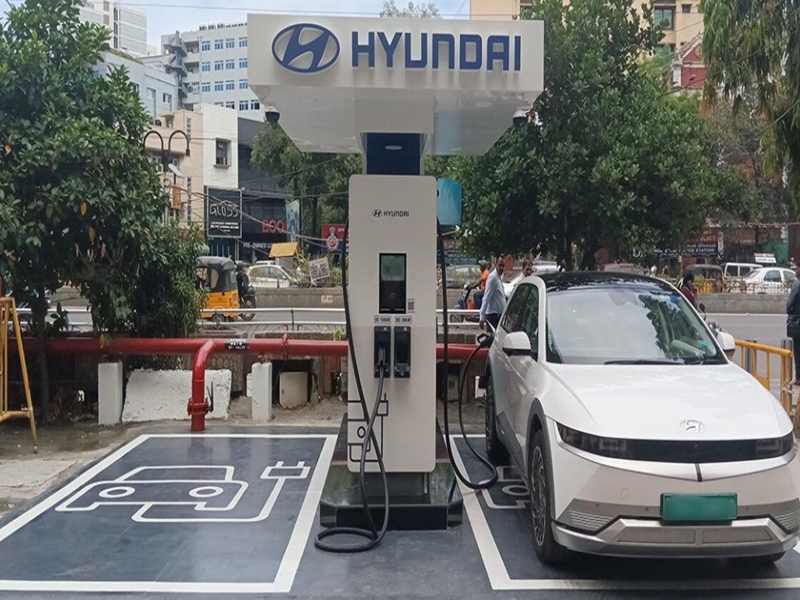The introduction of the electric vehicles (EVs) has brought some respite to green-conscious consumers and nations. Without any sort of emission, EVs represent a proven way to cut down emissions significantly…writes Akshit Bansal
Going green has become a global mantra after many years of continuous advocacy and occupying the front burner of multilateral and international deliberations. It is a consensus worldwide that fossil fuels, such as oil, gas and coal, form the major source of carbon (Greenhouse Gas) emissions, notorious for causing environmental pollution, depletion of the ozone layer, and triggering global warming and climate change concerns.
With hotter temperatures, increased drought, more severe storms, rising and warmer oceans, loss of species, food shortages, and mounting health risks, the world has now declared climate action a global emergency. The UN resolved to reduce carbon emissions by 45 percent by 2030 and reach Net Zero emissions by 2050. Other bodies have also keyed into this commitment, including the International Air Transport Association (IATA), which has resolved to reach Net Zero Emissions by 2050.
EVs and the green movement
The introduction of the electric vehicles (EVs) has brought some respite to green-conscious consumers and nations. Without any sort of emission, EVs represent a proven way to cut down emissions significantly. The United Nations report that fossil fuels account for 75 percent of all emissions, and much of this comes from fossil fuel-powered vehicles. This means switching to electric vehicles by as much as 50% will cause a significant improvement.
India, for instance, hosts some of the world’s most polluted cities, in terms of air quality. Delhi, Kolkata, and Mumbai were three Indian cities found in the list of the world’s top 10 most polluted cities, according to a November 2023 report. While there is still a long way to go, the last few years have seen the Asian giant pay more attention to its energy transition drive, with the number of registered EVs increasing exponentially, from 329,808 in 2021 to 1,020,679 in 2022, and 3.45 million in as of January 2024.
EVs do not have tailpipes and do not pose any threat to the environment with regards to carbon emissions. Even though some concerns have arisen as they concern the extraction of the materials used for manufacturing electric batteries, specifically lithium and cobalt, technological improvements have led to a significant reduction in such extraction impact. More so, the EV tends to make up for it during its lifetime. Therefore, India needs to double up on her current efforts to move from combustion engines to electric models.
Beyond the environment: EVs and the wallet advantage
There are several financial benefits of EVs to Everyday car owners that will finally put to rest the long-standing Combustion vs EV debate. For starters, many nations including India offer incentives to their citizens to purchase electric cars. This brings down the initial cost for the individual and helps them save some money. Tax credits are also offered to EV users in many parts of the world where it is actively encouraged.
Additionally, energy costs are often put into context. It relatively costs lower to power an EV than it does to fuel a combustion engine. It is believed that the presence of more EV charging stations in India will trigger competition which can bring down the cost of charging further and increase the overall cost effectiveness of EVs. These electric cars, according to a 2020 Consumer Reports study, can cut maintenance and repair costs by half because they do not have the complexity and process-oriented mechanisms like combustion engines. Furthermore, there’s the cost of climate change which is reduced drastically with the use of EVs.
The EV rush and the bundle of benefits
The adoption of EVs will continue to rise in India and other parts of the world. As conversations continue to birth meaningful conventions and resolutions, especially at international platforms like the recent COP28, the world has continued to respond positively. It is clear that the adoption of EVs do not only have a positive impact on the environment, by reducing carbon emissions, but also on overall socioeconomic well-being.
The direct impact of carbon emissions on humans, such as respiratory disease and discomfort, and its impact on climate and the attendant flash floods, heat waves, as well as the consequence on agriculture and wildlife, make it a necessity to achieve significant reduction in the use of combustion engines and fossil fuels. One way to do this is the rapid and systemic adoption of EVs and charging stations.
ALSO READ-World Leaders Gather in Nairobi for UN Environment Assembly














